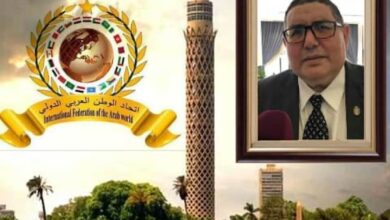الطب الحديث: امتداد لإرث المصريين القدماء

بقلم سلمى يونس
لطالما أبهرتنا الحضارة المصرية القديمة بإنجازاتها المعمارية العظيمة وآثارها الباقية حتى اليوم، لكن الجانب الطبي لهذه الحضارة يستحق الاهتمام أيضًا. من خلال الدراسات الحديثة، تتجلى لنا صورة واضحة عن مدى تطور المصريين القدماء في مجال الطب، وكيف أن هذا الإرث لا يزال يؤثر على ممارساتنا الطبية الحالية.
من أبرز الاكتشافات التي تؤكد على براعة المصريين القدماء في الطب، هو الكشف عن أقدم حالة معروفة لمرض السرطان في مقابر العمال بناة الأهرام. وفقًا لعالم الآثار الشهير زاهي حواس، فقد اهتم المصريون القدماء بتشخيص المرض الخبيث وعلاجه منذ 5000 عام. كما ألقت دراسة حديثة نشرتها مجلة Frontiers in Medicine الضوء على تقنيات الجراحة المتقدمة التي استخدمها المصريون القدماء، حيث تم في هذه الدراسة فحص جمجمتين تعودان لفترات مختلفة من الحضارة المصرية واكتشاف وجود آفات سرطانية وأدلة على تدخلات جراحية لعلاج هذه الآفات. تم فحص الجمجمتين باستخدام تقنية الماسح المقطعي الدقيق (micro-CT) وتحليل السطح العظمي. أظهرت النتائج وجود آفات سرطانية في كلا الجمجمتين وعلامات على تدخلات جراحية. في إحدى الجماجم، تم اكتشاف علامات قطع حول الآفات السرطانية، مما يشير إلى أن المصريين القدماء قد طوروا تقنيات جراحية متقدمة للتعامل مع الأمراض السرطانية والرضوض الشديدة.
إلى جانب تفوقهم في مجال الجراحة، لعبت النباتات الطبية دورًا حيويًا في الطب المصري القديم. شجرة السدر nbs-tree، المعروفة علميًا باسمZiziphus Spina-Christi، كانت تستخدم لعلاج التورمات والاضطرابات الالتهابية. أظهرت دراسة حديثة نشرت في يونيو أن ٢٠٢٤ في مجلة Biomedicine and Pharmacotherapy أن مستخلص هذه الشجرة تساهم في التقليل من بعض المؤشرات الالتهابية والألياف في أنسجة الرئة، مما يشير إلى تأثيره الواعد في الوقاية من التليف الرئوي.
كما اهتم المصريون القدماء برعاية النساء خلال الحمل والولادة. استخدموا الأعشاب الطبيعية ومستحضرات لتسهيل عملية الولادة وتخفيف الآلام، كما استخدموا طرقًا لتحديد جنس الجنين والتنبؤ بمواعيد الولادة. من ناحية أخرى، كان المصريون القدماء من أوائل الشعوب التي استخدمت تقنيات متقدمة في طب الأسنان، مثل تثبيت الأسنان بواسطة أسلاك الذهب بالأسنان المجاورة، واستخدام غسولات فم متنوعة لمكافحة أمراض اللثة مكونة من النخالة والكرفس، وبعضها كان يحتوي على مكونات نشطة لتخفيف آلام الأسنان والفم.
تؤكد هذه الاكتشافات على المهارات الاستثنائية التي امتلكها الأطباء المصريون القدماء. من تشخيص السرطان إلى استخدام النباتات الطبية والجراحة وطب الأسنان، كان لديهم فهم عميق للصحة البشرية. هذا الإرث الطبي لم يتوقف عند حدود الماضي، بل استمر في التأثير على ممارساتنا الطبية حتى اليوم.
بهذه الطريقة، يظل الطب الحديث مدينًا بالكثير للمصريين القدماء، الذين كانوا روادًا في مجالات الطب والجراحة. إن استكشافاتهم وابتكاراتهم الطبية لا تزال تشكل حجر الزاوية في فهمنا للصحة والعلاج، مما يبرز تأثيرهم العميق والدائم على تاريخ الطب البشري.
Modern Medicine: A Continuation of Ancient Egyptian Legacy
By Salma Younes
The ancient Egyptian civilization has always amazed us with its architectural achievements and enduring monuments. However, the medical advancements of this civilization also deserve significant attention. Recent studies provide a clear picture of how advanced the ancient Egyptians were in the field of medicine, and how this legacy continues to influence our current medical practices.
One of the most remarkable discoveries highlighting the expertise of ancient Egyptian medicine is the identification of the oldest known case of cancer in the tombs of the pyramid builders. According to renowned archaeologist Zahi Hawass, the ancient Egyptians were diagnosing and treating malignant diseases as early as 5000 years ago. A recent study published in the journal Frontiers in Medicine sheds light on the advanced surgical techniques used by the Egyptians, examining two skulls from different periods of Egyptian history and finding evidence of cancerous lesions and surgical interventions to treat them. The analysis aimed to characterize the lesions and provide a diagnosis using a methodology based on micro-CT scanning and microscopic bone surface analysis. The results showed neoplastic lesions in both skulls and signs of possible surgical interventions. In one of the skulls, cut marks around the cancerous lesions were discovered. This indicates that the ancient Egyptians had developed advanced surgical techniques to manage cancer and severe trauma.
In addition to their surgical prowess, medicinal plants played a crucial role in ancient Egyptian medicine. The nbs-tree, scientifically known as Ziziphus Spina-Christi, was used to treat swellings and inflammatory disorders. A recent study published in June 2024 in the journal Biomedicine and Pharmacotherapy found that the extract from this tree helps reduce certain inflammatory markers and fibrosis in lung tissues, indicating its promising effect in preventing pulmonary fibrosis.
Ancient Egyptians also paid great attention to caring for women during pregnancy and childbirth. They used natural herbs and preparations to ease labor and relieve pain. They also developed methods to determine the gender of the fetus and predict birth dates. Furthermore, the ancient Egyptians were among the first to use advanced techniques in dentistry, such as stabilizing loose teeth with gold wire, and using various mouthwashes made from ingredients like bran and celery to combat gum disease. Some of these mouthwashes contained active ingredients to alleviate toothaches and other oral pains.
These discoveries highlight the exceptional skills possessed by ancient Egyptian doctors. From diagnosing cancer to using medicinal plants, performing surgeries, and advancing dental practices, they had a profound understanding of human health. This medical legacy did not end in the past but continues to influence modern medical practices today.
In this way, modern medicine owes much to the ancient Egyptians, who were pioneers in the fields of medicine and surgery. Their medical discoveries and innovations continue to form the cornerstone of our understanding of health and treatment, underscoring their profound and lasting impact on the history of human medicine.





